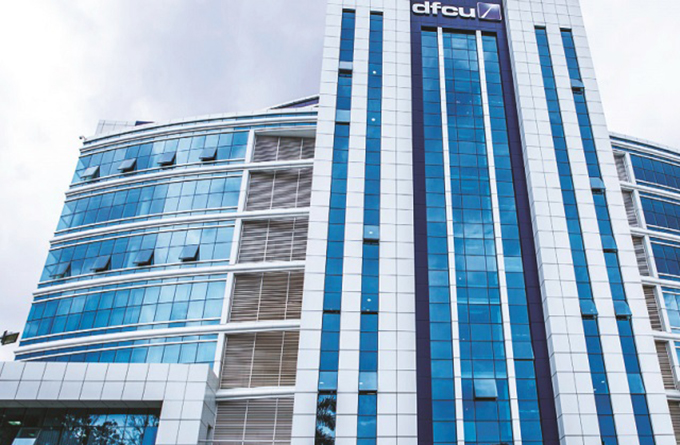
CDC, Britain’s oldest Development Finance Institution is giving up its stake in DFCU Bank following the controversial Crane Bank takeover in January last year.
CDC has been a major and the oldest investor in DFCU, having partnered with the Government of Uganda in 1964 to set up DFCU, although it ventured into commercial banking in 2000. According to its website CDC’s investment in DFCU is US$15.1m (equity) and US$10m (subordinated loan).
Recent media reports cast the light on how CDC, a British institution was part of the controversial Crane Bank takeover that was termed as “fraudulent” by analysts and as a major shareholder it appears they have succumbed to pressure and given up their interest in DFCU.
CDC’s Investment Director in charge of Financial Institutions, Irina Grigorenko, said it was “undertaking a review of its investment in DFCU Limited, which may lead to the disposal or some of some or all of its shares in DFCU over the short to medium term.”
“It is our aspiration to exit in a manner that causes minimum disruption to the business and ensures the orderly trading of DFCU’s shares,” Irina wrote in a letter to DFCU’s top management on June 14.
Irina added that CDC’s objective is to identify “like-minded investors who could support DFCU in its new phase of growth.”
DFCU’s other major shareholder is Arise B.V. of Norway and they are yet to comment on the developments.
Legal battles with Crane Bank shareholders
One of the busiest departments in DFCU since the Crane Bank takeover is the legal department as they are entangled in a web of law suits with former Crane Bank shareholders. The Crane Bank sale agreement between Bank of Uganda and DFCU excluded Crane Bank shareholders contrary to the Financial Institutions Act, immediately raising the red flag.
The agreement was also “deliberately silent” on the amount DFCU was to pay as a net purchase price and it later turned out that Crane Bank that was valued at Shs1.3 trillion was acquired for Shs200 billion. DFCU management is on record for bragging that they got Crane Bank on the cheap. Revelations later indicated that DFCU took over Crane Bank without paying a cent.
DFCU has also been slapped with suits by Crane Management Services and Meera investments, over Crane Bank property. The companies owned by tycoon Sudhir Ruparelia a former Crane Bank shareholder filed several suits for trespass and illegal possession of property in regards to 42 former Crane Bank branches that DFCU assumed ownership of.
DFCU was also sued for ignoring contractual obligations they inherited from Crane Bank over property the bank they took over was renting. The properties include the former Crane Bank headquarters on Kampala Road where DFCU was slapped with a Shs32 billion suit.
Possible new investors?
CDC said they have held negotiations with possible investors to take over their stake in DFCU. “We have held preliminary discussions with a small number of potential investors” which include Cranemere Africa Limited and responsAbility Investments AG.
Cranemere is a holding company for outstanding businesses in the US and Europe. Its shareholders are major families and institutions from the United States, Europe, the United Kingdom, Latin America, and the Middle East.
responsAbility Investments AG is private Swiss enterprise founded in 2003. They describe themselves as an asset manager in the field of development investments.
The company says its total assets are worth $3bn and has invested in Procredit Group (Germany) at the Chase Bank Kenya Limited (Kenya) and Hattha Kaksekar Limited (Cambodia).
The companies are however doing due diligence on DFCU and sources say the controversial Crane Bank take over that has been in the news for over a year now is of keen interest. It should be recalled that DFCU’s profits rose from Shs31 billion to Shs150 billion just three months after taking over Crane Bank.
For CDC, it is one way and the way is out as it “may consider alternative exit routes, including a partial or full sale of our stake through a capital markets transaction, if no satisfactory progress can be achieved with the strategic investors.”